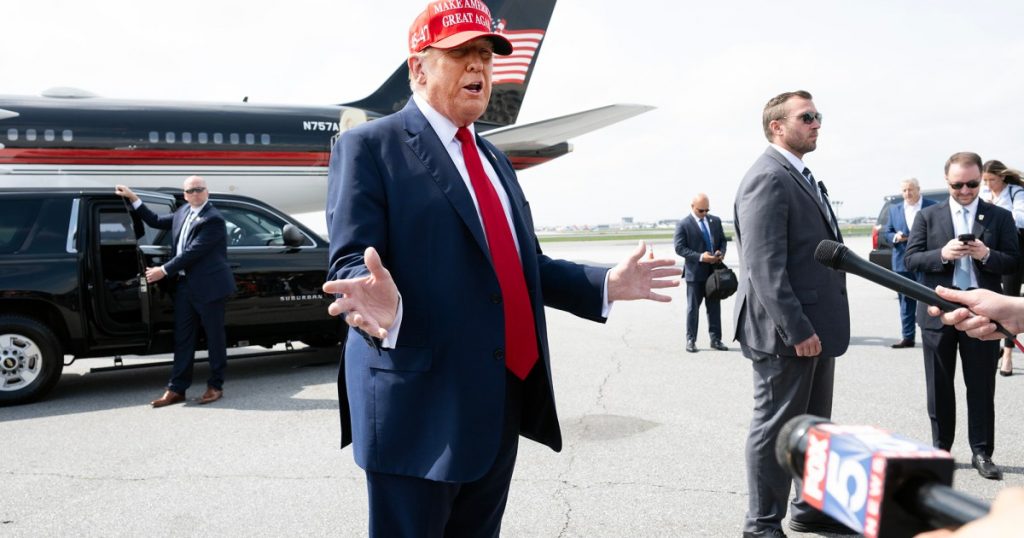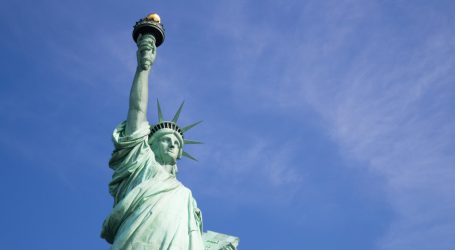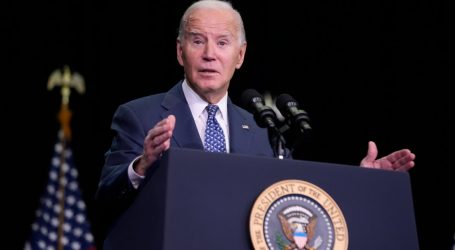Donald Trump Will Speak at the Libertarian Convention. It’s Not as Weird as It Sounds.
Robin Rayne/ZUMA Press Wire
Fight disinformation: Sign up for the free Mother Jones Daily newsletter and follow the news that matters.On Wednesday, the Libertarian Party revealed a special guest speaker at its convention in late May. Surprise! It’s former President Donald Trump.
“This momentous occasion will mark the first time a former President directly addresses our members, candidates, and executive committee,” the party announced. “Don’t miss this opportunity to hear insights from a prominent figure in American politics and watch him engage with Libertarian ideals.”
That wasn’t all. A version of the page that has since been taken down invited members to shop from what it called “‘The Don’ Collection”—an assemblage of t-shirts featuring Trump’s hairdo over a range of favored LP issues, like freeing Silk Road founder Ross Ulbricht from federal prison. For a $10 donation, you can even “cast your vote on the topics President Trump will address during his time at the podium.”
How did Donald Trump, an authoritarian Republican whose lawyers recently argued that the president can assassinate anyone he wants without being prosecuted, end up with a save-the-date for a libertarian conference? The simple answer is that the party invited both Trump and Biden to the event and Trump was the only one who said yes. (Third-party candidates Robert Kennedy Jr., Jill Stein, and Cornel West all previously appeared at the California Libertarian Party convention in February.) But the relationship between Trump and the current incarnation of the LP goes a bit deeper than that. As I reported in a recent story for the magazine, the party is in the midst of one of its semi-regular civil wars:
Under the auspices of expanding the tent, some within the LP—and a fair number outside of it—began clamoring for a different kind of party: more aggressive, more offensive, and more right-wing. They weren’t interested in third-place showings; it wasn’t entirely clear if they were interested in competing at all. What’s followed has been more than seven years of spectacularly messy infighting. New Hampshire was only one front of many. Across the country the Libertarian Party has been plagued by breakaway factions, leaked chatrooms and conspiracy theories, and bitter struggles over bank accounts and social media handles.
This power struggle played out across a series of larger events. After the 2016 election, in which LP nominees Gary Johnson and Bill Weld received the party’s biggest-ever vote haul, some members argued the party had sold out by hitching its brand to two Republican ex-governors (a little ironic, given the current circumstances). After Charlottesville, libertarians split over whether to condemn bigots in their midst. And during Covid, party leaders faced a vocal backlash for not protesting loudly enough against vaccine mandates and lockdowns. This culminated, in 2022, in the “takeover” of the party by a faction called the Libertarian Party Mises Caucus (named for the Austrian economist Ludwig von Mises), which wanted to turn the organization into a sort of the permanent campaign for the “Ron Paul Revolution.”
It would be a bit too simplistic to say that the Libertarian Party went full-on MAGA. But the new cohort was distinctly right-leaning in some key respects. They took concrete steps to disassociate the party from its support of socially liberal policies—rewriting the platform to eliminate the LP’s longtime neutrality on abortion, deleting a pledge condemning bigotry as “irrational and repugnant,” and expressing support for the idea of secession. There was a sometimes virulent strain of angry anti-wokeness, and an affinity, at least in some circles, for a more nationalistic identity that rejects the free migration of people. One of the leading candidates for the party’s presidential nomination said last year that “open borders…plays into the globalist objective” to “erode the entire culture base of the United States.”
In previous years, Trump and the LP would want nothing to do with each other. But this isn’t the LP of previous years, and presumably that’s why Trump accepted the invitation: There will be people in that room who might actually come over to his side—if they aren’t there already. Still, there is a silver lining for everyone else. Perhaps we’ll get the answer to the question we’ve all wondered: Does Donald Trump think we should need a license to make toast in our own damn toaster?





